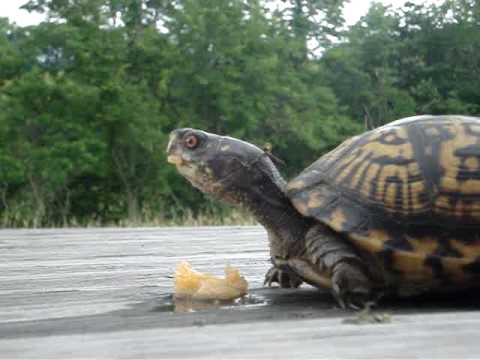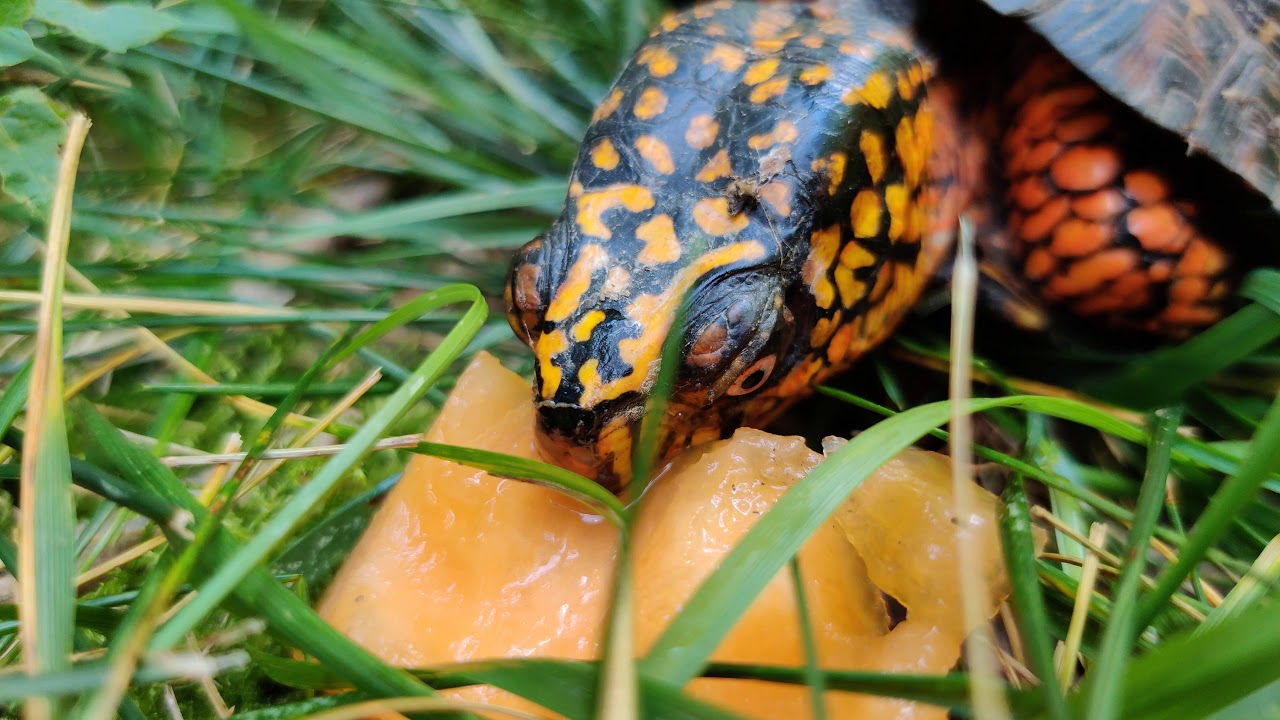Cantaloupe, also known as muskmelon, is a delicious and refreshing fruit that many of us enjoy. But can turtles partake in this juicy treat as well? In this article, we will explore whether turtles can eat cantaloupe and discuss the potential benefits and risks associated with feeding them this fruit.

Can Turtles Safely Consume Cantaloupe?
Turtles are omnivorous creatures, meaning they have a varied diet that includes both plant and animal matter. While their primary diet consists of insects, fish, and vegetation, some turtles may also enjoy the occasional fruit. Cantaloupe, with its high water content and sweet taste, can be an enticing option for turtles.
The Nutritional Value of Cantaloupe for Turtles
Cantaloupe is a rich source of vitamins and minerals that can provide some nutritional benefits to turtles. It contains high levels of vitamin A, which is essential for maintaining healthy eyesight and promoting overall growth and development in turtles. Additionally, cantaloupe is packed with antioxidants that can help boost the immune system of these reptiles.
Feeding Cantaloupe to Turtles: Dos and Don’ts
While cantaloupe can be a healthy addition to a turtle’s diet, it is important to follow some guidelines to ensure their well-being:
-
Moderation is key: Cantaloupe should only be offered as an occasional treat and not as a staple food. Too much fruit can disrupt the balance of nutrients in a turtle’s diet.
-
Fresh and ripe: Always choose ripe cantaloupes that are free from any signs of spoilage. Wash the fruit thoroughly before offering it to your turtle.
-
Remove the rind and seeds: Turtles should only consume the flesh of the cantaloupe. Remove the rind and seeds, as they can be difficult for turtles to digest and may cause gastrointestinal issues.
-
Cut into small pieces: Chop the cantaloupe into small, bite-sized pieces to make it easier for turtles to eat and prevent choking hazards.
-
Observe your turtle: Monitor your turtle’s reaction to cantaloupe. If you notice any signs of digestive upset or discomfort, discontinue feeding this fruit.
Potential Risks and Considerations
While cantaloupe can be a healthy addition to a turtle’s diet when offered in moderation, there are some risks and considerations to keep in mind:
-
High sugar content: Cantaloupe is relatively high in sugar compared to other fruits. Excessive sugar intake can lead to weight gain and other health issues in turtles. It is crucial to limit the amount of cantaloupe offered to prevent these problems.
-
Digestive issues: Turtles have sensitive digestive systems, and consuming large amounts of cantaloupe or any new food can cause digestive upset. Introduce cantaloupe gradually and monitor your turtle’s response.
-
Variety is key: While cantaloupe can be a tasty treat, it should not replace the essential components of a turtle’s diet. Ensure that your turtle receives a balanced diet consisting of a variety of foods to meet its nutritional needs.
Conclusion
In conclusion, turtles can safely consume cantaloupe as an occasional treat. This fruit can provide some nutritional benefits, but it should be offered in moderation and as part of a balanced diet. Remember to remove the rind and seeds, cut the fruit into small pieces, and observe your turtle’s reaction. By following these guidelines, you can ensure that your turtle enjoys the occasional cantaloupe treat without any adverse effects on its health.
FAQs
1. Can turtles eat the cantaloupe rind?
No, turtles should not eat the cantaloupe rind. The rind is tough and difficult to digest, which can lead to gastrointestinal issues in turtles. It is best to remove the rind before offering cantaloupe to your turtle.
2. How often can I feed my turtle cantaloupe?
Cantaloupe should only be offered as an occasional treat to turtles. It should not replace the essential components of their diet. Feeding cantaloupe once or twice a month is generally sufficient.
3. Are there any other fruits that turtles can eat?
Yes, turtles can consume a variety of fruits in moderation. Some other safe options include strawberries, blueberries, and watermelon. Always research the specific fruit before offering it to your turtle to ensure it is safe for consumption.
4. Can baby turtles eat cantaloupe?
It is generally recommended to introduce new foods, including cantaloupe, to baby turtles gradually. Their digestive systems are still developing, and sudden dietary changes can cause digestive upset. Consult with a reptile veterinarian for specific guidelines on feeding cantaloupe to baby turtles.
5. Can turtles eat cantaloupe seeds?
No, turtles should not eat cantaloupe seeds. The seeds can be difficult to digest and may cause gastrointestinal issues. Always remove the seeds before offering cantaloupe to your turtle.

